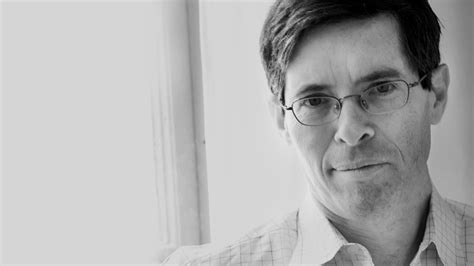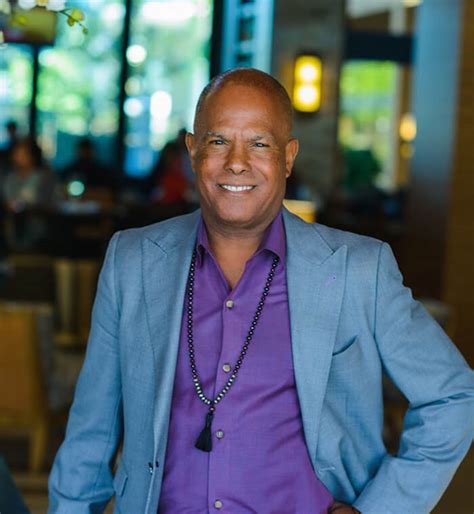Top 492 Tangible Quotes & Sayings - Page 9
Explore popular Tangible quotes.
Last updated on April 15, 2025.
The strategy of semantic ascent is that it carries the discussion into a domain where both parties are better agreed on the objects (viz., words) and on the main terms connecting them. Words, or their inscriptions, unlike points, miles, classes and the rest, are tangible objects of the size so popular in the marketplace, where men of unlike conceptual schemes communicate at their best. The strategy is one of ascending to a common part of two fundamentally disparate conceptual schemes, the better to discuss the disparate foundations. No wonder it helps in philosophy.
Buffett's uncommon urge to chronicle made him a unique character in American life, not only a great capitalist but the Great Explainer of American capitalism. He taught a generation how to think about business, and he showed that securities were not just tokens like the Monopoly flatiron, and that investing need not be a game of chance. It was also a logical, commonsensical enterprise, like the tangible businesses beneath. He stripped Wall Street of its mystery and rejoined it to Main Street -- a mythical or disappearing place, perhaps, but one that is comprehensible to the ordinary American.
Prayer is the most tangible expression of trust in God. If we would trust God for our persecuted brothers and sisters in other countries, we must be diligent in prayer for their rulers. If we would trust God when decisions of government in our own country go against our best interests, we must pray for His working in the hearts of those officials and legislators who make those decisions. The truth that the king's heart is in the hand of the Lord is meant to be a stimulus to prayer, not a stimulus to a fatalistic attitude.
Economists and workplace consultants regard it as almost unquestioned dogma that people are motivated by rewards, so they don't feel the need to test this. It has the status more of religious truth than scientific hypothesis. The facts are absolutely clear. There is no question that in virtually all circumstances in which people are doing things in order to get rewards, extrinsic tangible rewards undermine intrinsic motivation.The bonus myth: How paying for results can backfire The world is a dangerous place, not because of those who do evil, but because of those who look on and do nothing.
Jesus is the prime exemplar of life in God's presence. He lived out of an awareness of the identity God had given him, not the identity the world wanted to give him; he led an active, ongoing prayer life; he took time apart from the world to be with his Father; he made his Father's agenda his agenda; he made his Father's love for people evident in tangible ways; and so on. These are all characteristics that we should emulate in our lives.
Sri Yukteswar used to poke gentle fun at the commonly inadequate conceptions of renunciation."A beggar cannot renounce wealth," Master would say. "If a man laments: 'My business has failed; my wife has left me; I will renounce all and enter a monastery,' to what worldly sacrifice is he referring? He did not renounce wealth and love; they renounced him!"Saints like Gandhi, on the other hand, have made not only tangible material sacrifices, but also the more difficult renunciation of selfish motive and private goal, merging their inmost being in the stream of humanity as a whole.
I got elected on a commitment to Canadians that I was going to make growth work for everyone. I was going to focus on the middle class and those working hard to join it. I was going to make sure that the people who felt that the growth in the economy had left them behind would be included. That's similar to the promise that got Trump elected. Now, our approaches to the same problems are somewhat different. But in my conversations with him, we've very much been able to agree that we want to help the citizens of our countries in tangible ways.
Art is created to make us, to make our passage through the world better, fruitful - and I would say that every story in the end, if it is good, tells us something. This is actually what I meant when I said a novelist is a teacher. Which is why I am constantly dealing with "didactic". Now a teacher in the sense I use it is not somebody who has the profession of standing in front of children, with a piece of chalk in his hand scribbling on the blackboard. That is not the teacher I have in mind. The teacher I have in mind is something less tangible.
On one level, I'm interested in how the space dictates the effect visually - how the composition of a given work changes depending on the nature of each wall. But I'm also trying to emphasize less tangible elements: the amount of time it takes to walk the gallery's perimeter; how one's physical distance affects his or her sense of the overall composition; how the size of the space creates a sense of visual rhythm. It's really a matter of seeing how much structure is necessary to impose for those things to become apparent.
There's one uneasy borderline between what is external and what is internal, and this borderline is defined exactly by the sense organs and the skin and the introduction of external things within my own body. Consciousness is altered by physical events and physical objects, which impinge upon my sense organs, or which I introduce into my body. Now the name traditionally given to external objects or processes which change you internally is sacrament. Sacraments are the visible and tangible techniques for bringing you close to your own divinity.
Going back to my mother's passing, there was no way I could hold back my tears or sense of grief at knowing her physical presence left the planet. Working consciously with such an in-my-face overwhelmingly painful loss, I was able to process it to the point of accepting that although my relationship with her would be different, I could still sense and celebrate that there was no separation between our spirits. Being present and open to each stage of grief eventually led to her visiting me in my dreams and a tangible sense of her presence.
Oil is a tangible commodity, so there is a global market. The fact that we may need less may affect the global price because we're big consumers: we probably take about a quarter of global demand. But if suddenly, let's just use a crazy example, fighting in the Middle East led to the closure of the Strait of Hormuz and no oil could get out through the Strait of Hormuz, well that would affect China, India, Europe, it will affect the whole global economy. It will affect us, too, then.











